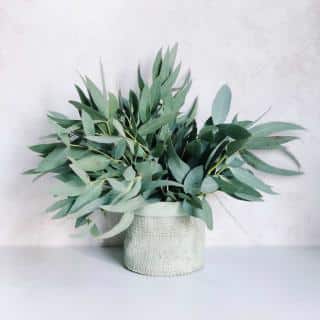When cough is frequent, due to an infection or throat irritation, cough is the body’s pulmonary defense response that expels foreign or excess substances. What causes cough? What are its symptoms? How can it be treated? Can plants help us for this?
Sometimes, cough occurs when swallowing food in the trachea or if you speak and swallow at the same time. Since the food item didn’t follow the normal path down to the stomach, this natural reflex helps expel it – quite forcefully.
Definition of cough
 Cough is often a pathological process, a reaction of the body to irritation, a vital reflex that aims to protect the lungs. This powerful expiration helps expel the air that was in the lungs. It isn’t a disease at all, but it may be a symptom of a disease or infection.
Cough is often a pathological process, a reaction of the body to irritation, a vital reflex that aims to protect the lungs. This powerful expiration helps expel the air that was in the lungs. It isn’t a disease at all, but it may be a symptom of a disease or infection.
When coughing, the patient ejects dust, foreign bodies that irritate it. This helps free the airway and thus eases breathing.
Origins of cough
Certain seasons of periods of the year often repeatedly see a rise in persons coughing due to bacterial infection of the upper respiratory tract. The causes are:
- cold, allergies, asthma, colds
Additionally, other possible causes are:
- sinusitis
- smoke
- infectious diseases such as pneumonia or tuberculosis
- bronchitis
- lung or larynx cancer
- pulmonary embolism, etc.
Cough and symptoms
There are 4 types of cough: dry cough, productive (wet) cough, chronic cough and medicinal cough.
- Sometimes called irritation cough, dry cough only lasts a short while. It occurs if the body felt cold and during colds. It produces no mucus, but is extremely exhausting.
- Productive cough on the other hand produces mucus. It usually appears as the natural consequence of a (non-infectious) dry cough and it helps clear the respiratory tract through expectoration.
- Chronic cough lasts much longer, sometimes over 2 months. This is typically the cough a smoker might have. It carries distinctive traits: rapid bouts of coughing, especially in the morning, wheezing, dyspnea during physical efforts and regular expectorations.
- Medicinal cough which is a side effect of certain medicines is often dry.
Treating cough with plants
 To alleviate or heal cough, sanitary experts have discovered the benefits certain plants impart us:
To alleviate or heal cough, sanitary experts have discovered the benefits certain plants impart us:
- Marshmallow root, fir buds and lungwort drunk in the form of herbal tea all have expectorant properties.
- Great mullein, eucalyptus, fennel, mallow and common ivy are very effective in treating wet cough. Herbal tea made from these increases the fluidity of secretions and expectoration. Crush green anise (aniseed) seeds in tea, it’s also a mucilage.
- Thyme and Iceland moss are both disinfectant plants that are very useful in treating dry cough.
How to proceed
To quickly and effectively find solace, gather the following herbs:
- ⅓ oz (10 g) ivy leaves (not poison ivy!),
- ½ oz (15 g) great mullein,
- ⅓ oz (10 g) licorice roots,
- ½ oz (15 g) mallow leaves,
- ⅓ oz (10 g) thyme,
- ⅓ oz (10 g) marshmallow roots.
Then, prepare them in the following manner:
- Mix all of the above.
- Boil one cup of water and add 1 teaspoon of the plant mix.
- Let it steep for 10 minutes.
- Filter the preparation and add honey.
- Drink several times a day.
If the cough persists and symptoms such as weight loss, fever, painful headaches, asthma or traces of blood appear in the mucus, immediately visit your consulting physician.
Read also:
Images: Pexels: Daria Shevtsova; Pixabay: Andrey Grachev, Semevent


 Cough is often a pathological process, a reaction of the body to irritation, a vital reflex that aims to protect the lungs. This powerful expiration helps expel the air that was in the lungs. It isn’t a disease at all, but it may be a symptom of a disease or infection.
Cough is often a pathological process, a reaction of the body to irritation, a vital reflex that aims to protect the lungs. This powerful expiration helps expel the air that was in the lungs. It isn’t a disease at all, but it may be a symptom of a disease or infection. To alleviate or heal cough, sanitary experts have discovered the benefits certain plants impart us:
To alleviate or heal cough, sanitary experts have discovered the benefits certain plants impart us: